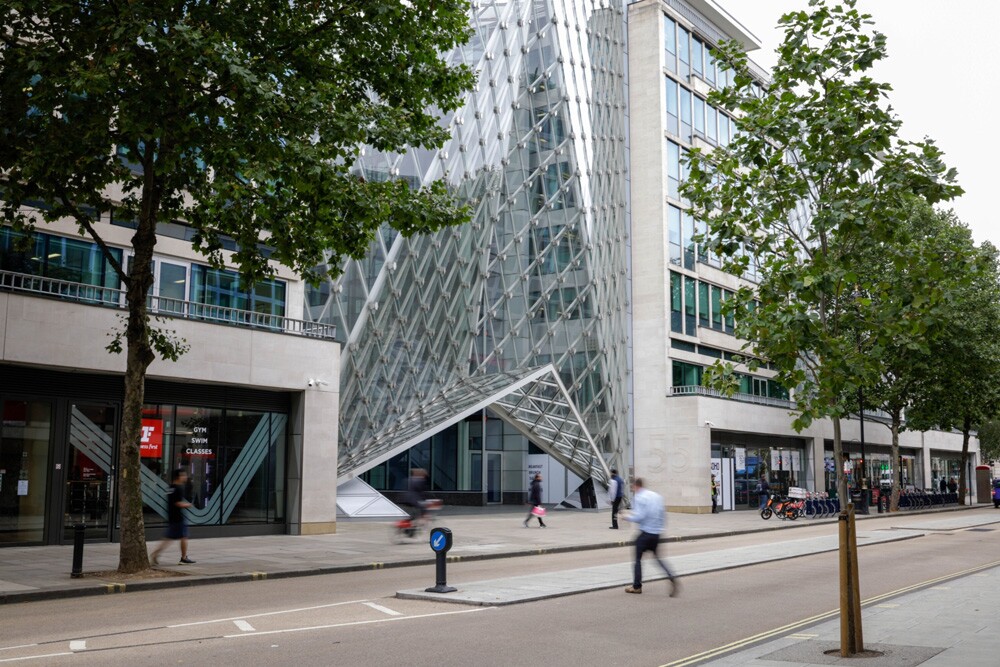From September 6, when Liz Truss was named U.K. prime minister, to October 20, when she announced her resignation, the FTSE 100 tumbled 4.88 percent. BH Macro, Brevan Howard Asset Management’s listed closed-end fund, gained 1.78 percent.
That tells you most of what you need to know about how the $28 billion hedge fund firm is succeeding amid the current vortex of U.K. economic policy chaos, global pandemics, mounting interest rates, and a Russian invasion of Ukraine that world leaders including U.S. President Joe Biden have labeled genocide.
Year to date through September, the $1.5 billion BH Macro, which invests in Brevan Howard’s flagship master fund, was up 24.06 percent in British pounds, according to Morningstar. The average macro hedge fund was up 10.34 percent, according to Hedge Fund Research, with the Barclays Capital Government/Credit Bond Index falling 15.67 percent. And the Standard & Poor’s Global Broad Market Index has lost 25.61 percent of its value over that stretch.
Updating results brings BH Macro’s gain year to date to 27.81 percent through October 21 — arguably a gilded moment for Brevan Howard co-founder Alan Howard, who works on strategy and across multiple funds — and who was recently the focus of a U.K. tabloid frenzy in response to his elaborate Lake Como wedding to chef Caroline Byron (where Lady Gaga performed).
“He’s got hot hands,” said Erik Herzfeld, president of Thomas J. Herzfeld Advisors, which manages and invests in closed-end funds. “His performance is absolutely fabulous.”
Howard and his staff are known for their use of derivatives to construct complex, asymmetric trades, but much of the 2022 gains were due to straightforward, full-throttle wagers on rising U.S. interest rates, according to analysts and monthly BH Macro portfolio reports. “They have had the biggest leverage to this trade,” said Christopher Brown, a closed-end fund analyst at JPMorgan Cazenove.
Emerging markets, foreign exchange, and a bullish stance on volatility helped results, according to the reports. Both directional and relative value bets on European rates were drags on performance.
A dire macro outlook is good news for Brevan Howard. “The Trussonomic circus has created an embarrassing distraction, but the reality is that global financial markets have much greater problems to deal with and the specter of stagflation [is] looming large,” said Investec analyst Alan Brierley in an e-mail.
A rarity among London-listed closed end funds, BH Macro trades at a premium to net asset value, recently at 13.37 percent. The premium hit a peak of 17.7 percent in September. BH Macro has been issuing shares at prices above NAV — more than £200 million ($232.6 million) worth so far this year.
A Brevan Howard spokesman declined to comment on the record. A BH Macro spokesman did not respond to an e-mail and a phone call requesting comment.
As a closed-end fund, BH Macro is unique. “It is one of very few strategies that has a proven track record of delivering strong returns [when] financial markets are volatile and declining — a true diversifier,” said Ewan Lovett-Turner, director of investment companies research at Numis Securities, in an e-mail.
Recent results are proving something of a vindication for Howard. After generating eye-popping returns during and after the 2008 financial crisis, Brevan Howard’s performance sagged during the years of quantitative easing and subdued market volatility. Returns vacillated in the single digits, both negative and positive, after 2012. Firmwide assets, which topped $40 billion in 2013, fell to just $6.3 billion at their nadir in 2018.
Howard began an overhaul of the firm, rejiggering fees and allocating capital to a small group of star traders, including Alfredo Saitta, Trifon Natsis, Fash Golchin, and Minal Bathwal, each of whom managed their own fund or funds. Howard stepped back from the CEO job in 2019, handing the reins to Aron Landy, the firm’s longtime chief risk officer.
Since then, of course, the world has fallen apart, volatility has returned to the markets, and Brevan Howard’s fortunes have brightened considerably. The firm has added dozens of traders and is planning a new “pass through” fee for some investors meant to help the firm poach more top talent. In 2020, amid the mayhem of the pandemic’s onset, BH Macro returned more than 34.87 percent, before dropping to a 6.25 percent gain in 2021.
Now investors will need to decide whether BH Macro’s premium to NAV is worth it. That essentially means a wager on whether Howard and his band of traders will continue to thrive in a new era of fraught geopolitics and economic chaos.
“We believe this is a very fertile environment for BH Macro, and we expect the company to continue to deliver strong absolute returns while equities and bonds struggle,” said Investec’s Brierley.






